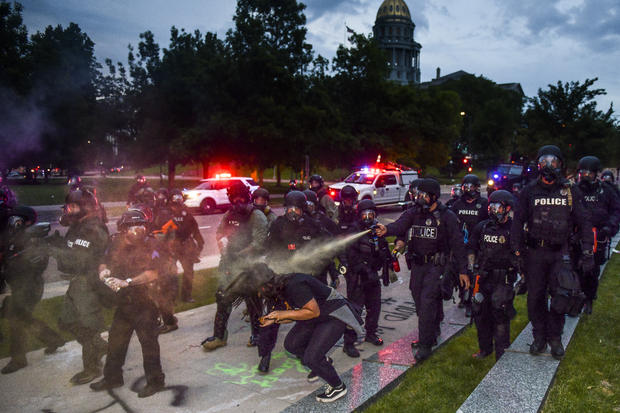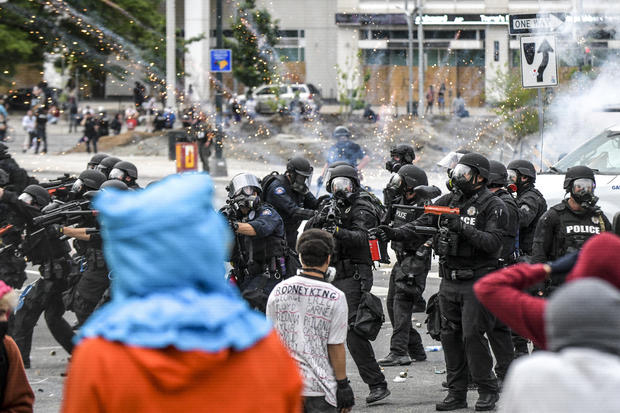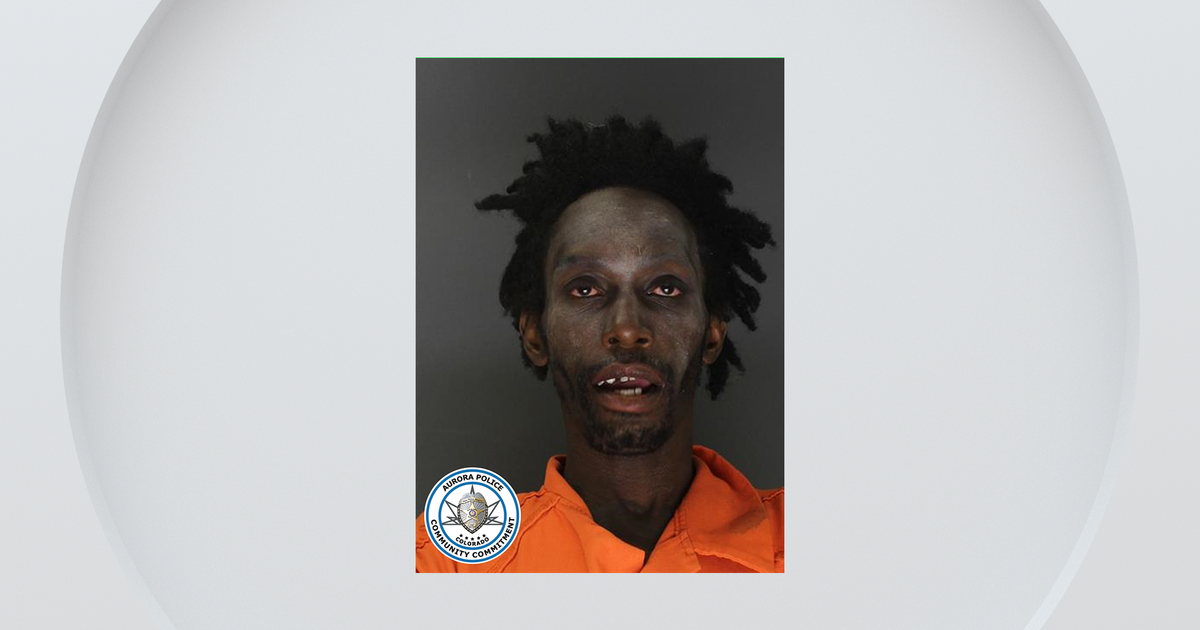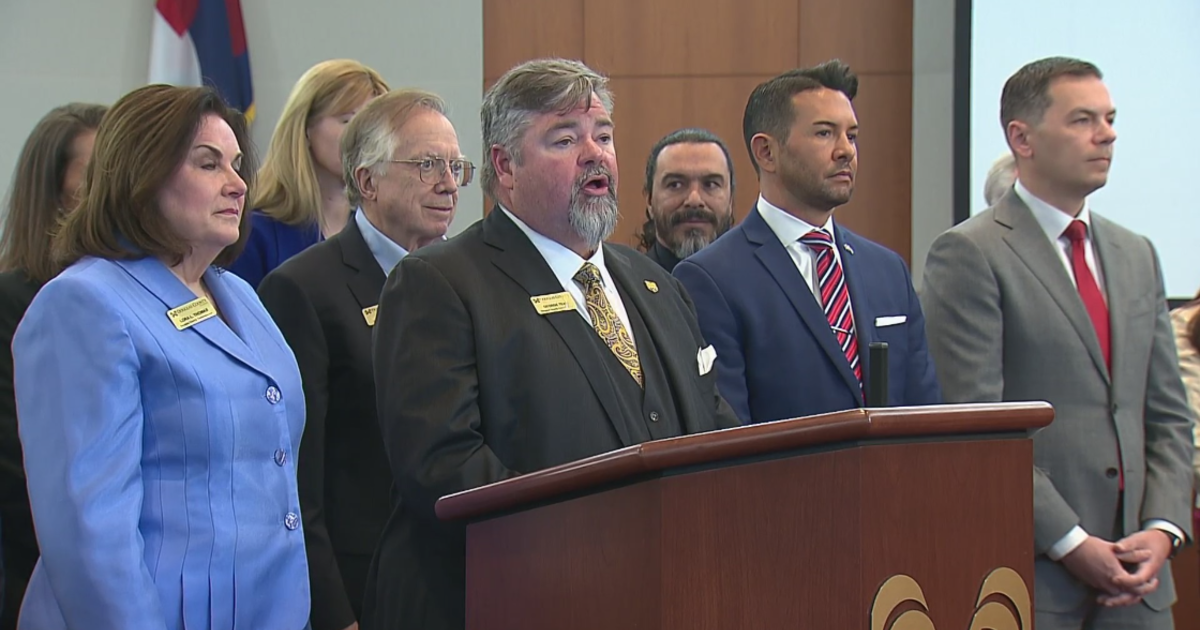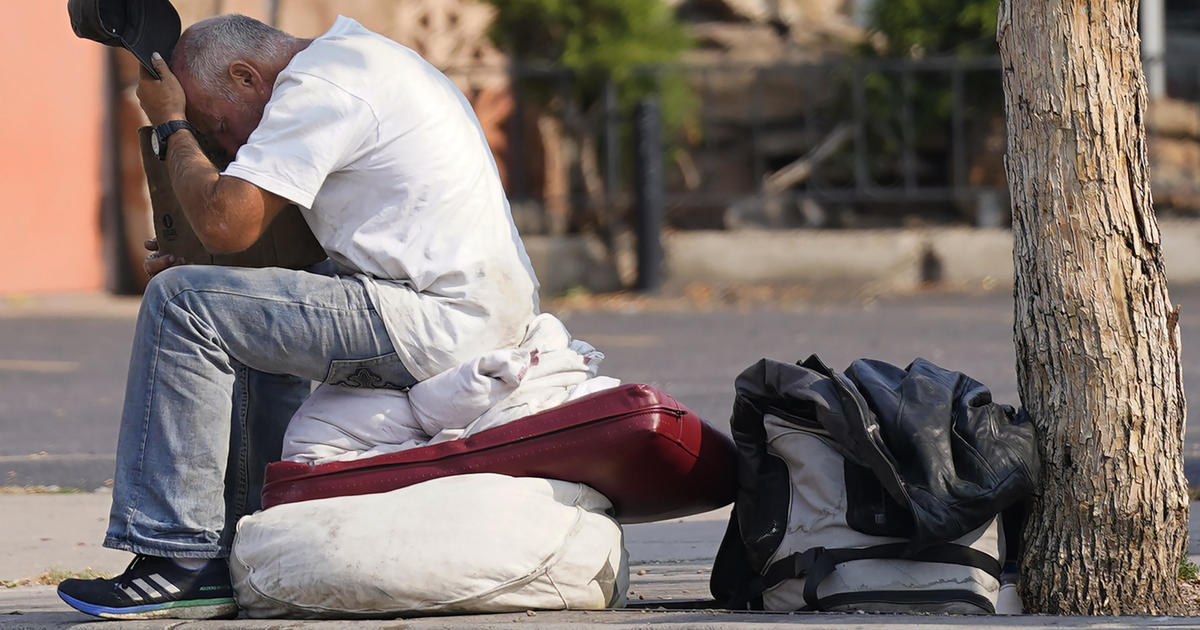Judge Grants Order Limiting Use Of Less-Lethal Weapons By Police During Denver Protests
DENVER (CBS4) - A federal judge granted a temporary restraining order Friday night, limiting the use of less-lethal weapons by police during protests in Denver. The motion was filed by plaintiffs in a class action lawsuit against the city of Denver and the Denver Police Department.
In the lawsuit, the plaintiffs allege Denver police are using excessive force against protesters downtown. The judge's order prevents police from using chemical weapons or projectiles at the protests, unless approved by an on-scene superior in response to acts of violence or destruction of property.
Since Thursday, hundreds of people have gathered near the Colorado State Capitol to protest the death of George Floyd, an unarmed black man who died while being arrested and pinned to the ground by a Minneapolis police officer.
All police agencies who respond to the protests in Denver are required to comply with the judge's order. Officers are instructed to have their body-worn cameras recording at all times during the demonstrations, and they may not intentionally obstruct the camera or recording.
On Twitter Friday night, the Denver Police Department said they will comply with the order, but are requesting modifications. A spokesperson for the department said there is concern over the battery life of body-worn cameras. DPD policy allows officers to turn on body-worn cameras on an as-needed basis.
The Denver Police Department is also seeking clarification on authorizing use of force. The order states an on-scene supervisor at the rank of Captain or above can authorize the use of less-lethal force in response to violence or destruction of property that the command officer has personally witnessed.
Judge R. Brooke Jackson stated in his analysis of the protests that the Denver Police Department "failed in its duty to police its own."
"Officers used physical weapons and chemical agents to prevent not just peaceful demonstration, but also the media's ability to document the demonstrations and plaintiffs' and third parties' ability to offer aid to demonstrators," Judge Jackson stated. "Peaceful demonstrators' legitimate and credible fear of police retaliation is silencing their political speech—the very speech most highly valued under the First Amendment."
The order blocks police from firing less-lethal projectiles indiscriminately into a crowd, or aimed at protester's head, pelvis or back. Officers may only use chemical agents or irritants, including pepper spray and tear gas, only after an order to disperse is issued and adequate time is given for protesters to comply.
Judge Jackson stated the most likely potential harm of the protests is an increase in property damage.
"Although I do not agree with those who have committed property damage during the protests, property damage is a small price to pay for constitutional rights—especially the constitutional right of the public to speak against widespread injustice," Jackson stated. "If a store's windows must be broken to prevent a protestor's facial bones from being broken or eye being permanently damaged, that is more than a fair trade. If a building must be graffiti-ed to prevent the suppression of free speech, that is a fair trade. The threat to physical safety and free speech outweighs the threat to property."
